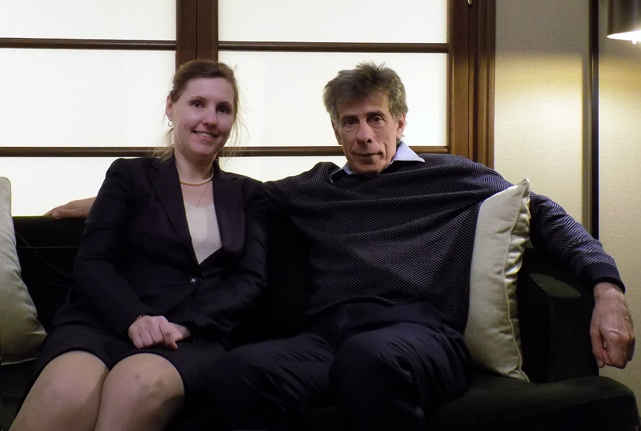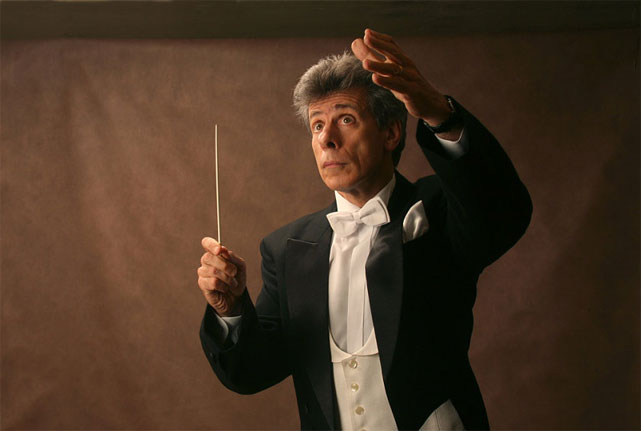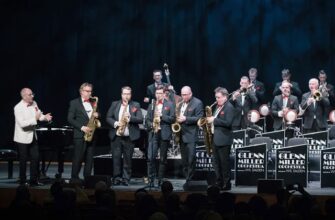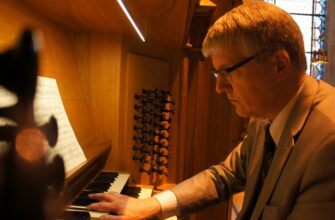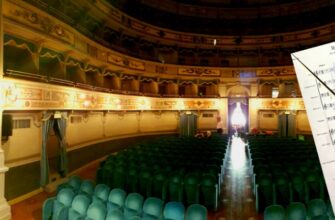Although name of the conductor Jan Latham-Koenig is latin, he occupied important place in music life of modern Russia and his work defines it. Chief conductor of famous Kolobov New Opera, Mr. Koenig is associated in our mind with important Russian premieres. His taste in music always gives the listener a guarantee of quality in the choice of works and in performance both.
The secrets of the music selection, the creativity and the identity of the conductor of the cultural-political magazine “E-Vesti” we learned from an interview with Jan Latham-Koenig. We propose it to our readers.
EV: Are you from musical family yourself?
Latham-Koenig J.: Not professionally. My mother was amateur pianist, my father was amateur singer. My parents grew up the days before television, before computers. It was different atmosphere from today.
EV: Do you thing its due to the family atmosphere you’ve chosen music?
Latham-Koenig J.: I’m one of five children, and three of us are very close just one year apart. We all have started playing piano at 4 y.o., but of the three I was the one who became musician.
My sister showed extraordinary talent for words. She has written best-selling method for teaching English to foreigners. Her books are extremely popular in Russia.
My other sister was talented in painting. She became director in painting for National Gallery in London.
We had perfect example of the parents exposing the children to the three main areas of culture: literature, painting and music. Each one of us chosen own way. Our parents never imposed anything on us. Probably, they felt it could be counterproductive.
EV: In times of Bach music was family profession. It seems in Russia it usually continues – the profession is often hereditary. But I can see in your family it was not so.
Latham-Koenig J.: I noticed this in Russia and in Austria too. That is why you maintain very high level of young people there. Look at David and Igor Oistrakh. But rarely the son is so great as his father.
It’s a very difficult balance if you’re a parent to find better way for the child. I thing the best thing is to expose. But I was very lucky: I knew what I want already when I was twelve while most people of nineteen still don’t know it.
I knew I want to be very good practical musician and I was very fortunate. I started my careers as a pianist and violist. Piano is the only instrument that gives you sense of harmony and structure. When I was eighteen I knew I want to conduct to understand how it works with instruments. This is very difficult for him the rehearsals. You have to know the way how you can put forty or fifty people together.
EV: Your musical programme is always very interesting. How do you form it, how do you choose among different composers and pieces, genres and nations? You play modern music as well.
Latham-Koenig J.: I have mixed background of cultures. My father was French, my mother – half Danish, half Polish. As a conductor I tried to be very eclectic.
I have spent a lot of time in Italy, France and in Austria, I was conducting in Vienna. In Florence I conducted “L’incoronazione di Poppea” by Claudio Monteverdi, but generally my repertoire starts from Bach. By the way, here two years ago we did several times “St. Matthew’s passion”.
My repertoire is very immense in the XIX century, but also in the XXth century. Because a conductor should engage in composes and I have been very privileged because in my time I have worked with living composers: Hans Werner Henze, Sir Peter Maxwell Davies, Sir Michael Kemp Tippett and others. Among those whom I knew there is Krzysztof Penderecki. And I knew W. Walton very well. He invited me to stay with him at his house in Ischia. He lived in Italy after the war. The last time he heard his piece “Façade” is when I performed it to him in 1982.
I even sign as a boy with Sir Benjamin Britten. When he made a very famous recording of his “War requiem”, I’m singings in the boys’ choir.
If you say you prefer classic to contemporary music, I say there is only good music and bad music. For me, choice is a question of good music. There are bad pieces from the XVIII century and bad pieces from today. But – there is one big difference. From the past we only perform the best pieces. We perform Beethoven and only the best from him; we perform almost everything from Mozart, but from his the last 10 years. But who performs Salieri?
From contemporary music we don’t know what would be the best music. That’s why we need to be more patient. But there are certain composers from the XX century: Shostakovich, Leoš Janáček, Francis Poulenc, Benjamin Britten and William Walton.
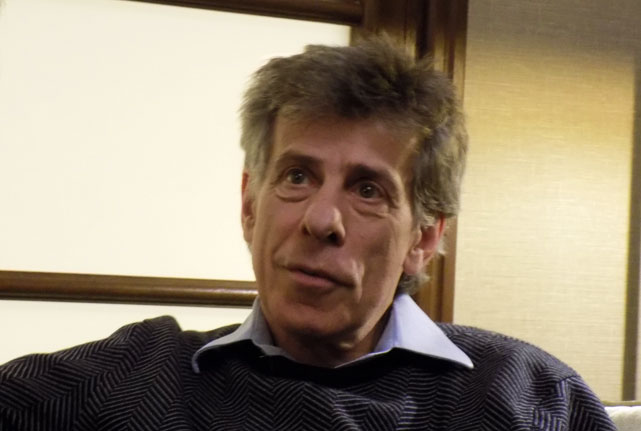
EV: Proportion of modern and classical music in repertoire of the theatres is a problem. Recently our government announced a will to oblige Russian theatres to implement modern pieces. At the same time Russian conductors and directors prefer classical music, which will be understood by public. We, listeners, need a promotion to go for modern unknown music.
Latham-Koenig J.: You have to understand point of view of the hall and the promoter. Promoter wants a hall. If you make a programme of contemporary music, the promoter knows that the hall will be empty. So, he needs to combine something less known with something well-known for people could come to the concert.
So, my experience is if you have three pieces in the programme, one could be difficult.
What you’re talking about, is not just a problem of Moscow, but a problem in the world. There are very few countries where contemporary music is played by the big symphonic orchestras. It happens occasionally in America, occasionally in Germany and France, and a little bit in Austria.
Generally, repertoire for public becomes narrower and narrower. When I was a student, the repertoire was much bigger to hear new things. Four years ago at the Novaya Opera I’ve played the 13th symphony of Shostakovich, the “Babi Yar”. When Shostakovich writing his new symphony in 1961-1962, it was exciting event.
The problem is: who is Shostakovich of today? I think the function of music has changed. Now you have a lot of composers that write in very conservative style. Because the public has changed.
EV: There is another aspect of music. Is it national or international or both? What is the proportion of national and international in music? Or does it depend on composer?
Latham-Koenig J.: My answer to this is that it depends on composer. Because approach of Bach to music is German by form. German music from its very start has always been attached to form. That is why they did not so much for theatre, but the written such marvelous sonatas, symphonies. There is such a structure.
If you see the Italian music, they have very little written in the symphonic music. It is almost exclusively for theatre.
The best composers however are national having international elements.
Influences make more sense for the national music. Some of the composers where national like Glinka, but with influences from Italia. Mozart – national Austrian composer, his influences were Italian as well. He spoke Italian, he wrote his best creations in Italia.
If I take Tchaikovsky symphony, and you will listen to six Russian interpretation of it by Mravinsky, Gergiev, Fedoseev, Rozhdestvensky, Yurovsky and Kondrashin – it will be different. So, what does it mean “Russian”?
When I was a very young in the early 1980s, I conducted Tchaikovsky violin Concerto in Sweden. The soloist was quiet known Russian violist, who was concertmaster of Mravinsky. He took me out to lunch to the restaurant and told me: “We think that western conductors don’t understand Thaikovsky because you make him much sentimental, he was not sentimental”. I realized that he didn’t express own opinion, but opinion of his conductor Mravinsky. When I listened to Mravinsky, I realized that he was right.
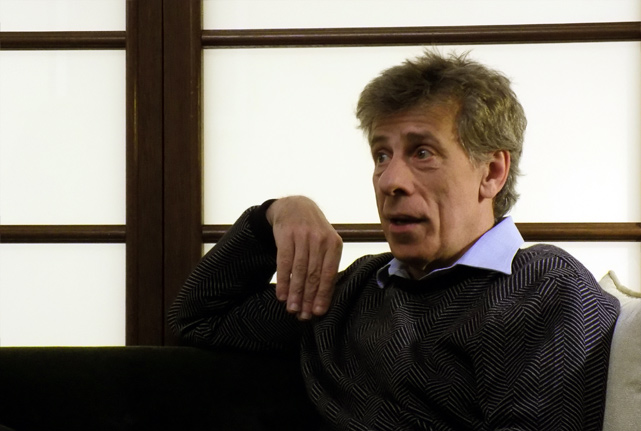
EV: What can you say about Russian public? I’ve been told that it prefers cheerful music, but you represented things like “Passenger” at Novaya Opera.
Latham-Koenig J.: “Passenger” is a specific music, this is not cheerful music. But most operas are not cheerful music too. For example, “Tristan and Isolda” or “Salome”. They all enduring sadly. But is it usually about human emotion. “Passenger” is not about lady dying of tuberculosis. It’s about mass murder.
If you really want to understand history – history is my hobby as well as politics – you actually need to visit Auschwitz. I’ve visited it many times. Until you go there you will not really understand it. You see the room with glasses taken from prisoners before they murdered. Or you see the room full of hairs, suitcases or photographs. Then you understand. You actually need to go there.
I think this is very difficult for any public today, because there had never been anything like it. The war left millions of people. That is why we should study it very carefully. But this is another reason why I love working in Russia. No other nation would have combined national propaganda with classical music.
What I like very much about the Russian public is that you have mix of the generations. You don’t have people of old ages at concerts only. The audience is getting older and older in the West; it is 60-70 years old people. And in Russia it is a tradition of families going to the concerts. You’re preparing the public of the next generation.
